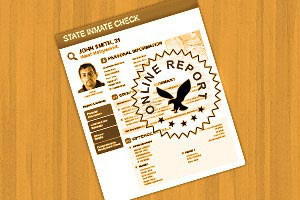South Carolina Public Records
This is the South Carolina State Records website. Its mission is to provide South Carolinians with the right to examine and obtain public records. This is in accordance with the South Carolina Freedom of Information Act, which ensures government information and records are available to the public.
This information is available to all members of the general public and will given immediately and concisely without requiring any personal information unless such information is confidential by law.
The following subjects are covered: criminal records, court records, and vital records, including over 45 million transparent public records.
Are South Carolina Records Public?
The South Carolina Freedom of Information Act (FOIA) ensures that interested persons can access public records created by government entities. According to the law, the South Carolina public has a right to information about the performance of public officials and decisions made towards public policy formulation (S.C. Code Ann. § 30-4-15).
Per the act, a public record includes documentary materials prepared, retained, or used by a public body for public business. The definition provides examples such as books, photographs, papers, recordings, tapes, and all other data storage forms regardless of characteristics and physical form (S.C. Code Ann. § 30-4-20).
What is Considered Public Information in South Carolina?
Public information in South Carolina include:
- Public court records
- Public sex offender information
- Public South Carolina divorce records
- Public bankruptcy records
- Public property records
While most records are open to the public, some records are only selectively available. For instance, certified copies of South Carolina death records are not open to the public. Access is restricted to certain eligible requesters, including the decedent’s family members and legal representatives of family members. However, the public may obtain uncertified copies after submitting a statement confirming the death, the county, and the date of death.
How Do I Find Public Records in South Carolina?
Interested persons can find public records by applying to public agencies for access. Although specifics may differ in some cases, requesters may consider the following steps on how to access public records in South Carolina:
- Determine the type of record
Requesters can identify the desired record based on the information contained. For instance, information on land and real estate ownership may require requesting property records. Determining the type of record helps the requester find out whether or not the information is open to the public under the FOIA.
- Identify the custodian agency
Since South Carolina agencies maintain different types of records, requesters must identify the applicable agency after deciding on the type of record. Persons seeking information on arrests or inmates must submit requests for arrest or inmate records to the relevant police department or sheriff’s office with jurisdiction. In the same way, requests for South Carolina marriage records should go to the South Carolina Department of Health and Environmental Control (DHEC).
- Create a request
Under the FOIA, request methods vary. The law specifies the types of records that requesters may obtain in person without submitting a written request. These include:
- Minutes of meetings for the previous six months
- Certain types of agency records specified in S.C. Code Ann. § 30-4-50(a)(8) for at least the previous 14 days
- Documents with identifying information on incarcerated persons for the previous three months
- All documents reviewed by or distributed to a member of the public agency during a public meeting for the previous six months
Apart from the above records, the FOIA specifies that interested persons should submit written requests (S.C. Code Ann. § 30-4-30(A)(2)(C)). However, some agencies may respond to oral requests at their discretion. Regardless of the agency’s preferred method, all requests should adequately describe the desired record. Requesters should also provide personal contact information along with their requests.
- Submit the request
After creating the request, the individual must submit it to the relevant entity. Agencies may define submission options, offering instructions and requirements for each one. For example, persons submitting requests via mail may be required to provide a self-addressed and stamped envelope, along with a cheque or money order. The online method may cost additional processing fees and may not be used to receive certified copies. Requesters must follow each agency’s specific instructions to avoid delays or denials.
Using Third-Party Sites
City Records
Public city records may also be accessible from third-party websites. These non-government platforms come with intuitive tools that allow for expansive searches. Record seekers may either opt to use these tools to search for a specific record or multiple records. However, users will need to provide enough information to assist with the search such as:
- The name of the subject involved in the record (subject must be older than 18 or not juvenile)
- The address of the requestor
- A case number or file number (if known)
- The location of the document or person involved
- The last known or current address of the registrant
Third-party sites are not sponsored by government agencies. Because of this, record availability and results may vary.
Public Records
Public records can also be accessed from third-party websites. These third-party public records aggregate websites offer search services that are non-geographically limited, making the search result expansive and typically straightforward. However, users will need to provide enough information to assist with the search, such as:
- The name of the subject involved in the record as long as the subject is not a juvenile
- The last known or location of the record subject
Third-party public records search websites are not government-sponsored services. Therefore, the availability and accuracy of results can vary.
How Do I Look Up Public Records in South Carolina for Free?
The FOIA encourages agencies to reduce or waive request fees if the agency decides that doing so primarily benefits the general public. If the requester believes that the record is in the public interest, the person may apply for a waiver. Free public records South Carolina agencies maintain may also be accessible via online repositories. An example is the free Public Sex Offender Registry maintained by the South Carolina State Law Enforcement Division.




